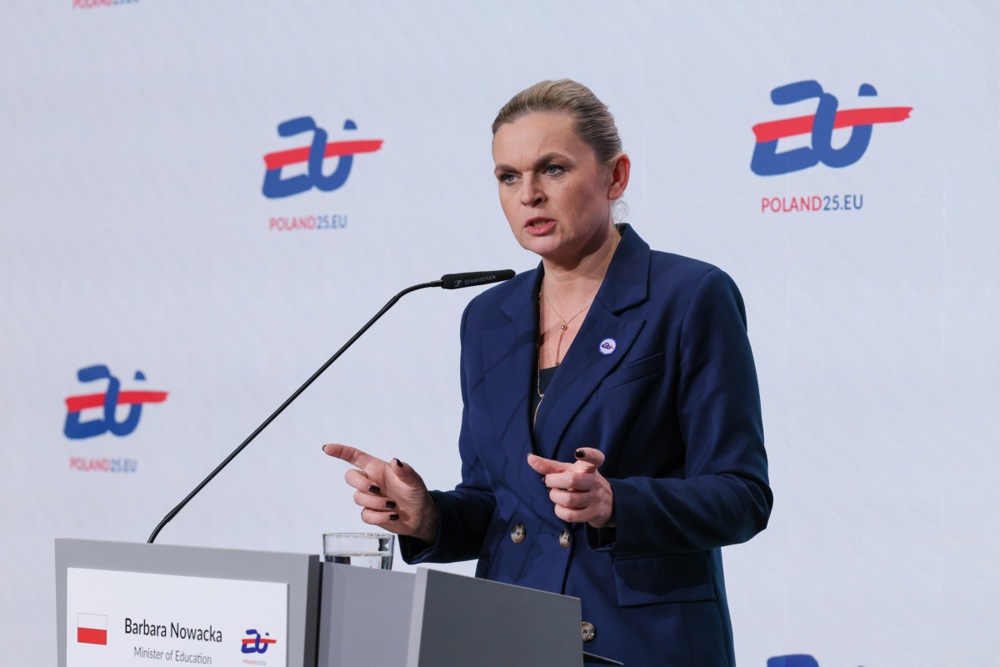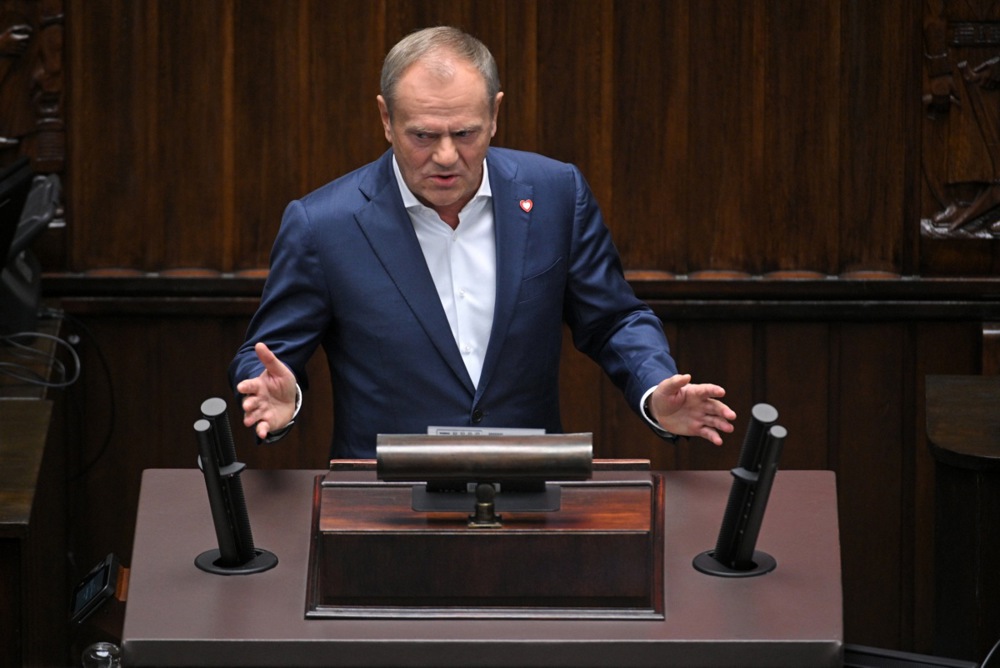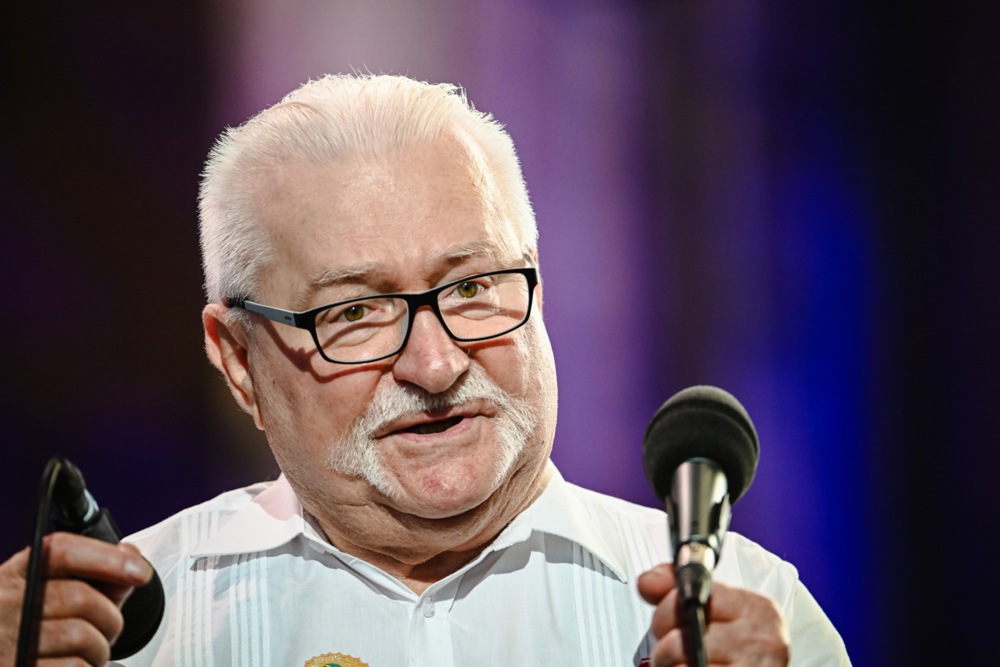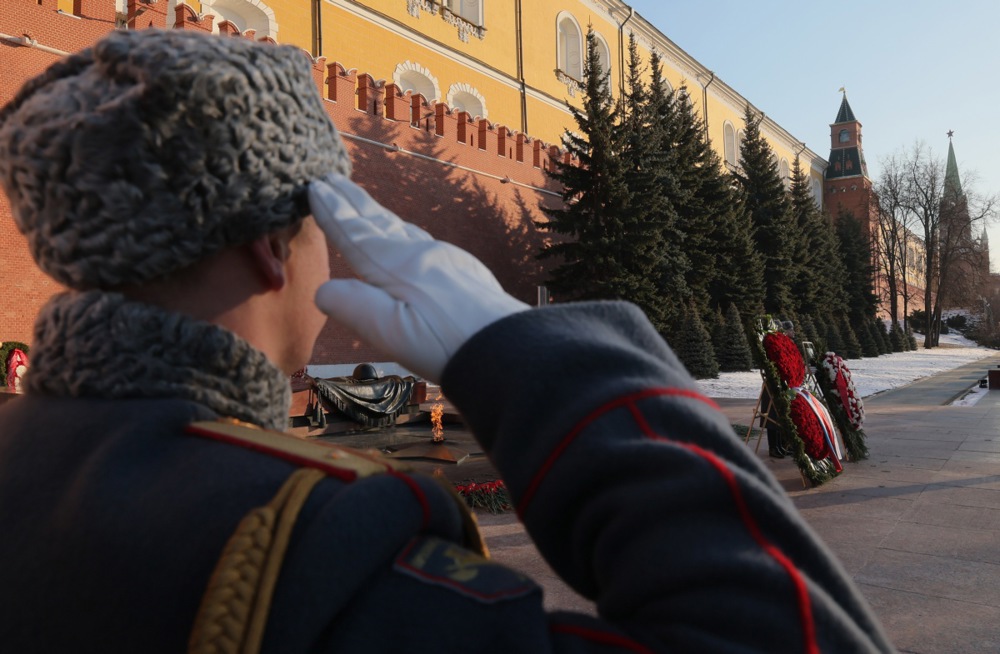Poland said it would expel 63 people after a controversial Ukrainian nationalist symbol was displayed at a concert in Warsaw.
That was despite the fact that, on announcing the decision, Polish Prime Minister Donald Tusk blamed Russia for sowing discord between Ukrainians and Poles.
The decision was disclosed on August 12 and affects 57 Ukrainians and six Belarusians who attended a concert by Belarussian rapper Max Korzh held at the National Stadium in Warsaw on August 9.
The event became widely publicised on Polish media thanks to clashes that broke out between concertgoers and security staff, leading the police to arrest more than 100 people at the concert.
Video footage from that event also showed at least one attendee brandishing a black and red flag of the Ukrainian Liberation Army (UPA), the military wing of the nationalist movement led by Stepan Bandera.
That was responsible for orchestrating the Volhynia massacre in the 1940s, which led to the slaughter of more than 100,000 Polish civilians in an ethnic cleansing operation.
Poland regards the Volhynia massacre as genocide whereas the present Ukrainian authorities regard it as regrettable example of ethnic cleansing but allege that Poland also pursued ethnic cleansing on its territory against Ukrainians.
The display of the Bandera flag caused uproar in the Polish media with politicians from all parties and commentators reacting angrily to both the display of the emblem and the fact that Ukrainians and Belarusians rioted in Warsaw at the concert.
There were also report that Max Korzh had held an impromptu concert without a permit in an open space in Warsaw on August 8 that led many local inhabitants to complain about the disturbance late at night.
Earlier on August 7, Poland’s interior ministry banned the holding on Polish soil of a youth cyclist rally in honour of Stepan Bandera after protests from Polish right-wing groups.
The late Bandera was a Ukrainian far-right leader of the radical militant faction of the Organisation of Ukrainian Nationalists.
Posting on social media on August 12, Tusk pointed the finger of blame for the incidents at the concert at the Russians.
“The resolution of the war in Ukraine is coming, so Russia is doing everything to sow discord between Kyiv and Warsaw.
“Anti-Polish gestures by Ukrainians and fuelling anti-Ukrainian sentiments in Poland are Putin’s scenario, orchestrated by foreign agents and local idiots. Always the same ones,” he wrote.
Tusk did not, though, produce any evidence that any of the 63 individuals being expelled had been acting at Russia’s behest.
Earlier, a man identifying himself as the person who brandished the flag, posted an apology on social media saying he only intended it as a symbol of support for Ukraine against Russian aggression.
In the video, the man, who identified himself as Dmitry, said: “I did not intend to provoke negative emotions. The flag which I held was, to me, a symbol of support for Ukrainians.
“I had nothing to do with propaganda for any regime. I just wanted to remind people about Russian aggression and the safety of our soldiers. If anyone felt hurt, I am sorry.”
He added that Ukrainians were thankful for Poland’s support.
“I am grateful to all Poles who helped and continue to help Ukrainians. I thank you sincerely, and I am sorry once again,” he said.
There has been no reaction from the Ukrainian authorities to the incident involving the Bandera flag nor the riot at the concert.
Poland since 2022 has acted as a hub for military and humanitarian aid for Ukraine and more than 1 million Ukrainians have been hosted as refugees in Poland and given full rights to employment, welfare benefits, education and healthcare.
Relations between the two countries have been deteriorating for the last two years, though, because of Ukrainian reluctance to accept Volhynia as genocide as well as tensions over Ukrainian grain exports.





